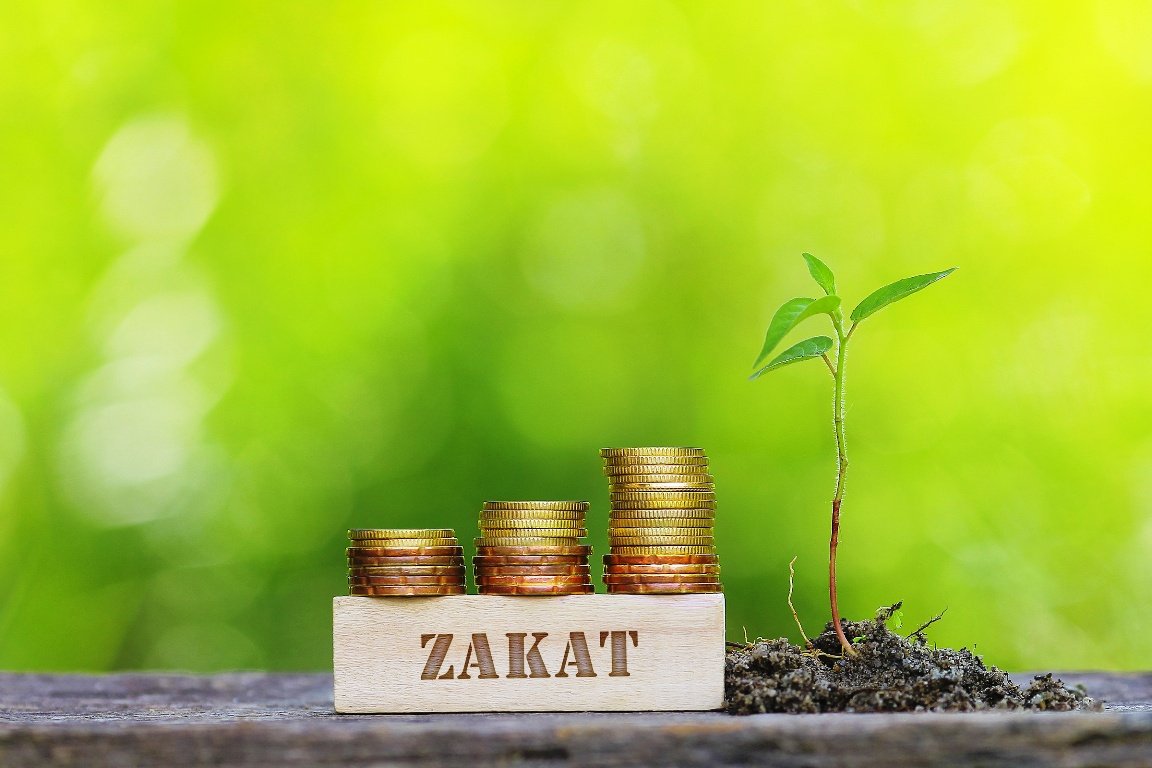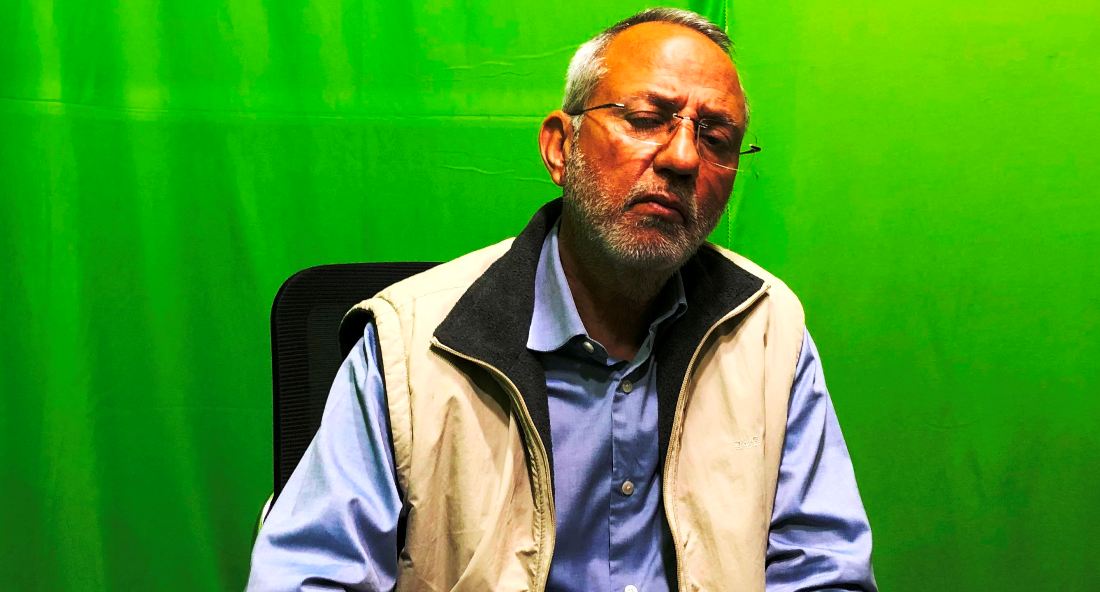A group of well-read and well-meaning officers and academics have joined hands and created a trust to manage Kashmir’s Zakat and other charities. Khalid Bashir Gura offers an idea for the ZIST
Almost every day, a case pleading helplessly on social media to crowd-fund an individual’s health emergencies. Frequently, there are instances in which people have lost their shelter to fires or other disaster. These cases are gradually surging across Kashmir as individual incomes dwindle; inflation surges and the opportunities for earning dignified livelihoods reduce. However, desperation demands compromise on the dignity of recipients.
However, Muslim scholars insist that institutionalising zakat would help manage this load better and faster, More so, without compromising the dignity of individuals who require help. In the absence of any proper institution, people lack options other than seeking crowdfunding. People are responsive and generously contribute. However, they respond to the stories they are fed. It often happens that a weak case with a good story can garner more support than a more deserving individual who lacks the storytelling. Sometimes people donate so generously to alleviate the distress in a single case that authorities have to intervene and freeze the bank accounts.
Frustrating Decision Making
Besides, the philanthropists’ perplexities are compounded in the absence of any proper institution. Despite growing poverty especially in the urban sphere, people in Kashmir remain ignorant of the essence of mass charity like Zakat or Sadqat and lack a system to identify the deserving recipients to address their multitude of issues.
Zakat, Infaq and Sadaqah Trust (ZIST) is one such institution that is working to address this issue. Through its diverse donors and trustees and addresses problems in the current scenario of zakat, infaq, sadaqah management and envisions the empowerment of recipients.
Ramzan Charity
Usually, the concluding days of Ramzan are marked by charitable initiatives laced with compassion and religious obligation. Last year, three days preceding Eid, Jammu and Kashmir Bank officials said the people withdrew an amount of Rs 2510 crore through 59.72 lakh transactions. Similarly, this month witnessed a surge in charity, however, according to some rough estimations, 85 per cent of people in Kashmir do not pay Zakat in Kashmir.
Mufti Nasir-ul Islam, Kashmir’s grand Mufti, said that after thorough consensus with Ulemas across Kashmir, Rs 65 had been fixed as Zakat-ul-Fitr (Sadqa Fitr) per person this Ramzan. This is in addition to Zakat, which is also paid every year by the people having enough of savings in cash and kind.
However, religious scholars have been stressing that people pay more as per their capability as individuals and as per the requirements of the faith. In the case of Sadqa Fitra, which every Muslim pays before the Eid prayers, the principle is to make a choice. Every individual is supposed to pay one Saa (somewhere between 2.6 kg to 3 kg) of barely, resins, dried dates or even cheese. Individuals have to choose as per their capacity.

“Rs 70 is the bare minimum calculated based on the staple food,” one scholar said. “It may fit the poor people but different economic classes can choose the fruit they wish to pay for. In certain cases of resins or dates, the Sadqa Fitr for an individual goes up to several thousands of rupees.
“Scholars fix the minimum payable amount so everyone can pay, but there is no harm if someone wants to pay thousands of rupees,” one Mufti said. “Everyone should ensure that the amount reaches the deserving. The best thing is to look out for the needy people in your locality so that no one will be left out.”
Zakat-ul-Fitr is to be paid to the downtrodden, poor, and destitute, including orphans. The amount should reach the deserving people ahead of Eid so that they too can celebrate the festival along with others.
This mass philanthropy lacks institutionalisation thereby depriving many of its benefits. To bridge this gap between giver and taker, an institution, Zakat, Infaq and Sadaqah Trust (ZIST) has come up with a unique concept of empowering people.
An Online Trust
ZIST through online charity mode bridges the gap between the donor and recipient. Prof Mushtaq A Siddiqui, former VC IUST, who heads the Trust said the ZIST is Kashmir’s first online, centralised and accessible trust. “ZIST is an organisation formed with a motive for planned collection and distribution of Zakat and Sadaqat,” he said. “This model ensures people come out of the orbit of seeking. We empower them enough to make them givers to society.” The donors also can assess the impact of their contribution as they see the transformation of lives.
Siddiqui said they have identified certain enterprises like sheep farming for transforming eligible beneficiaries. “Some foundations focus on the education of beneficiaries but we had to create a model according to our specific societal needs,” Prof Siddiqi said.
Sheep Rearing Model
ZIST pioneers said they studied Kashmiri society and came across many cases of growing poverty and other socio-economic issues plaguing the society. Only after, they decided to use sheep rearing as the game changer.

Sheep has a good local market. “Our experts suggested that sheep stock doubles within eighteen months and has the least mortality. The poor and needy farmers rear sheep and in turn help other eligible farmers by sharing their profits from progeny,” Siddiqui said. “We already have a database of eligible recipients in rural and urban areas. We are ready to share it with others who want to uplift them.”
Conventionally, sections of the Kashmir population pay Zakat by giving money to the needy without caring if that changes the beneficiary status. “The sheep model suits mostly the rural areas as they have some landholdings,” Siddiqui said. “However, for people living in urban areas and are battling increasing poverty, a farmer is identified and the sheep is given to him on behalf of the recipient. The profit will be shared with the urban recipient. But immediate necessities till the business blooms are taken care of through cash.”
Resource Orphans
ZIST executives said their model can easily link the widows, orphans and disabled with productive enterprises of farmers or other entrepreneurs in due course who in turn will share profits to sustain those who can’t work due to resource crunch.
Siddiqui said one can better help one’s kith and ken more through institutions to which one contributes. Individual contributions perpetuate dependence and compromise dignity.
“Our philanthropic mission is technology-driven like Uber or Ola. Our application will help donors to keep track of how their money is being utilized in the transformation of lives,” Siddiqi said. To keep the dignity of recipients intact, the identity will be kept anonymous. However, the identity can be revealed to donors for transparency and accountability purposes.
Organization Structure
“We have given it a proper hierarchical organisational structure. The people in the organization belong to diverse fields and bring their expertise and resources to contribute to the cause. There is a board of trustees of five people. It has a 15-member advisory council and members comprise from diverse fields.
Similarly, there is a committee of ground-level workers of almost 100 members which connects the trustees with society. “The committee will generate the data besides becoming a bridge between recipient and organization,” he said.
According to him, people have been donating generously for this ZIST project.
Taking Project to Masses
As the concept is novel, ZIST is reaching out first to educational classes in colleges and universities to explain its modus operandi. ZIST executives insist they want to reach the common masses through educational classes. They have already got a good response to their outreach.
“If we can generate good capital via Zakat and Sadaqa we may expand our objectives and address issues of education and health care,” Siddiqui said. “Managing health issues is compelling. We have come across cases wherein people have to sell property to get treatment.”
Volunteer Service
Full of zest and ambition, ZIST endeavours to tackle a wide spectrum of socio-economic needs of the Kashmir society like education, healthcare, old age related problems, specially-abled, eliminating begging, popularising agro-livestock banks and their share, supporting the agrarian economy and accommodations. It also envisions volunteering one’s skills and time to create resources of routine life like a chain of hospitals, wellness centres, centres for complementary classes or tuition and literacy for adults/unlettered, accommodation facilities for the travellers and students and affordable houses will be carved with the help of coordination of human resource through ZIST.
Zakat
According to ZIST, around 1500 crore could be basic Zakat collection if the majority of the population starts paying 2.5 per cent of their savings. All the trusts and bayt al amwal operating in Jammu and Kashmir don’t possess even one per cent of this. Unavailability of zakat on deposits (Rs 1,70,000 crore) in the banks, gold Rs 1,20,000 crore, idle acquired land, fruits such as apples (imagine how many thousands of boxes from the formula for one box from every 20 boxes of harvest, walnuts, grapes, cherry, pear etc can trigger a huge base of health for managing the ills of the society.
Zakat Calculator
Besides, ZIST offers professional assistance in calculating zakat besides filing annual zakat returns. Unlike Sadqah, Muslims must meet a certain threshold before they can qualify for zakat. “The amount is 2.5 per cent of an individual’s total savings and wealth. Zakat can be paid at any time during the lunar year. However, because of many rewards in Ramzan, Muslims choose to pay it in this month,” said Mufti Sameer Nadvi, who has specialised in Islamic jurisprudence.
“According to Nadvi, if one possesses wealth equal to 87.48 grams of gold or 612.36 grams of silver one is obligated to pay zakat. But it has to be paid annually. Similarly, if one’s savings in the form of currency exceeds Rs 60000 one has to pay accordingly,” he said. However, the same applies in Sadaqat- ul-Fitr and it applies to the majority of people.
According to ZIST, chairman, Prof Siddiqi, Kashmiris especially those settled abroad have a lot of unutilised property which qualifies for zakat and can be used for the welfare of the needy in society.















